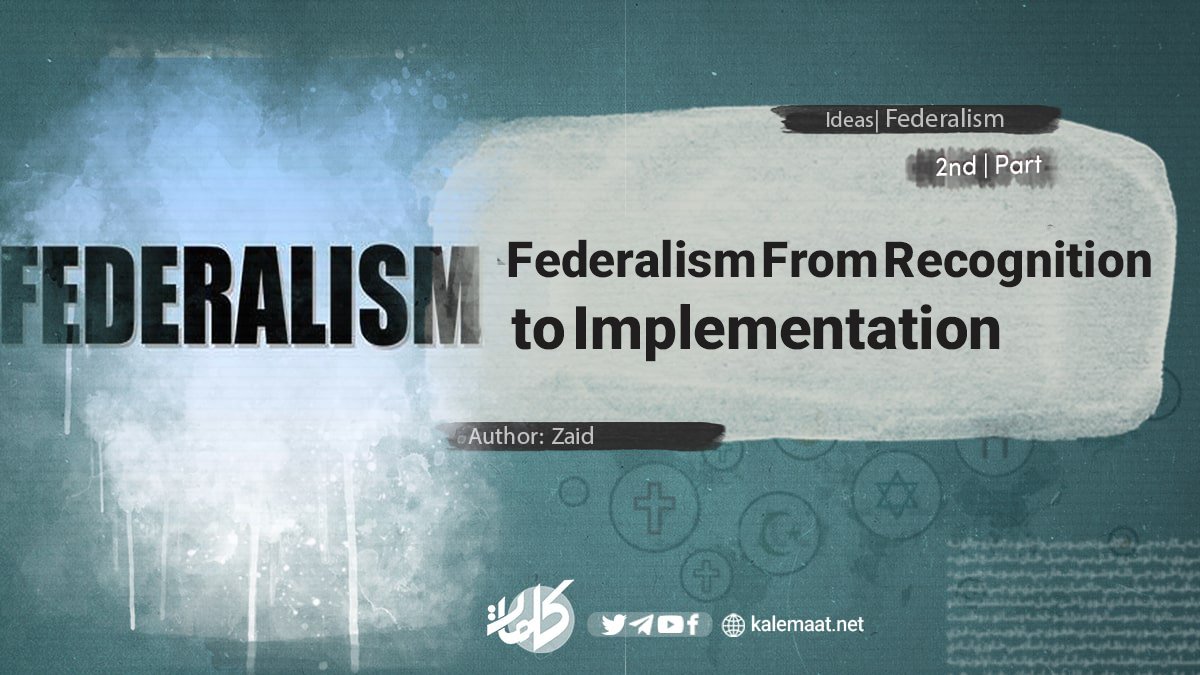Author: Zaid
Federalism from recognition to implementation (Part 2)
Historical background of federalism
If we take a look at the historical background of the federalism system, we will find that this system has not had an original principle and discipline throughout history; Rather, it has been implemented alongside the ruling systems in the ancient Roman and Greek countries and the new American powers.
We cannot discuss what political systems existed in the powerful country of Ajam history and how they ruled their people, or what was the basis of the relationship between the government and the nation, because our main goal in this topic is only to examine the federalism system. Therefore, we try to focus only on this topic and avoid the sidelines so as not to neglect our main goal. But as a preparation and a short introduction, we have to mention some ruling systems in history to make the essence of the matter clearer.
In ancient era, many examples of these relationships have been seen. In all ancient civilizations, from China to South America, from Egypt to India, and from Central Asia and the Middle East to Europe, all historical documents indicate the existence of different forms and diverse experiences that laid the foundation of social relations and subsequently defined politics.
Most of the political ideas that have been put into practice have received the most attention in Rome and especially in ancient Greece due to being a pioneer in writing history and its codification. Among these examples, which goes back to our topic, are the categories of federalism and Con federalism.
Therefore, we should quote the sayings and writings of some politicians and writers and expand the scope with their help.
The authors of Fadayan Khalq organization wrote in one of their publications: “From referring to the texts that narrate ancient history, it appears that the word “Fedos” was used for the first time during the ancient Greek and Roman times. Also, considering the actual history in which this word is mentioned, first “federalism” and then the word “Con federalism” have been used.
Therefore, it is necessary to define these terms briefly.
Fedos expressed the relationship of the Roman Empire with the neighboring sovereignties or in conflict with them. This means that the Roman Empire, in constant conflicts with its neighbors, turns to making treaties with some of them to deal with others. These treaties, which were called “Feudos”, contained commitments between the Roman Empire and some units, both internal and neighboring, to provide the military force of the Empire or other sovereigns that would cooperate with Rome to fight against common enemies in war and conflict they did.
Con federalism was used in ancient Greece to explain the relationship between independent governments and against the attacks of others.
In order to confront the powers of the time (especially the Achaemenids), the group of governments of the Athenian League signed a treaty with each other under the title of “Confederation of Athens”. Fadayan Khalq Iran magazine says that the first confederation was formed in 477 BC. This system had a superior position among its allies, but the Athenian confederation was based on the principle of more or less equal rights of the constituent governments.
In simple terms, it can be summarized as follows: in ancient Rome and Greece, a powerful unit such as the Roman Empire was formed, which relied on the system of feudalism to determine its relationship with other units, but the parallel powers in the league, which themselves had experienced a form of federalism to make treaties together, they created Con federalism. Thus, federalism and Con federalism were recorded in political history.



